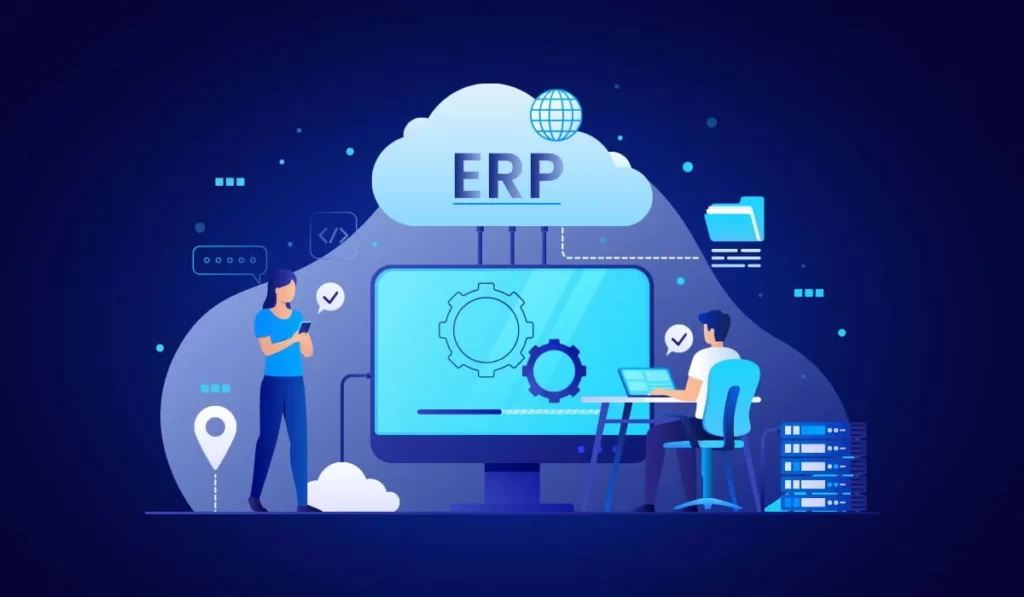Running a small or medium-sized business in Singapore is exciting — but let’s be honest, it’s also a juggling act. There are sales to track, inventories to monitor, employees to manage, and finances to sort out. And if your team is relying on a mix of spreadsheets, disconnected software, or good old-fashioned paper processes to keep it all together… things can quickly feel messy.
That’s where ERP systems in Singapore come into the picture.
You might have heard of ERP (short for Enterprise Resource Planning) as something only large corporations use. But that’s no longer true. More and more Singaporean SMEs are investing in ERP systems — not just to keep up, but to get ahead.
What Is an ERP System, Really?
At its core, an ERP system is a software application that consolidates all your key business functions into one centralised platform — from accounting and inventory management to HR, payroll, customer management, and beyond.
Think of it as the digital nerve centre of your company. Instead of using one system for invoicing, another for stock, and something else for HR, an ERP system like Million connects everything so that data flows smoothly between departments. No more jumping between tabs or manually copying information from one app to another.
Everything’s centralised, updated in real time, and available at your fingertips.
Why Are More SMEs in Singapore Making the Switch?
There’s a reason ERP adoption is growing among smaller businesses, especially in Singapore. The market here is fast, competitive, and tech-savvy. Customers expect efficiency. Partners expect professionalism. And the government? Well, they’re pushing hard for digitalisation too.
With initiatives like SMEs Go Digital and support schemes from Enterprise Singapore, the message is clear: businesses that embrace technology today are more likely to thrive tomorrow.
But beyond grants and incentives, here’s what’s really driving the shift.
1. You’ve Outgrown Manual Systems
When your business first started, it probably made sense to track things manually. A spreadsheet here, a calendar there, simple and low cost. But as orders increase and your team grows, keeping everything in sync gets harder.
Missed stock counts, duplicate records, slow reports — it’s not just frustrating, it starts to affect performance. An ERP system replaces the patchwork and gives your business room to scale, without the chaos.
2. You Need Better Visibility (Without the Guesswork)
How’s your cash flow looking this month? Which products are your top sellers? Are there any unpaid invoices that need chasing?
Without an integrated system, answering those questions can take hours or days. With an ERP system, the answers are a few clicks away. You get real-time dashboards, instant reports, and a full picture of your business anytime you need it.
This kind of visibility makes decision-making faster, sharper, and a lot less stressful.
3. You Want to Reduce Repetitive Admin Work
Let’s face it: many businesses waste hours every week doing things that could be automated. Entering the same data into multiple systems. Manually tracking leave applications. Typing out invoice details again and again.
ERP systems automate much of this. Raise a sales order? It can update inventory, notify finance, and trigger a delivery schedule — all in the background. Less manual work, fewer errors, and more time to focus on growth.
4. You’re Thinking Long-Term
Every business wants to grow, but growth often brings new challenges — more staff, more data, more complexity. An ERP system helps you build a strong digital foundation now so that you’re ready when that growth happens.
Whether you open a second location, launch new services, or expand your product range, the system is already in place to support you. No need to reinvent the wheel every time something changes.
Built for Singapore’s Business Landscape
One reason ERP systems are especially relevant here in Singapore is the localisation of features.
Many ERP providers — like AutoCount, Million, or SQL Account — offer built-in support for:
- GST filing and IRAS submissions
- e-Invoicing via InvoiceNow/Peppol
- Multi-currency handling for import/export businesses
- Compliance with local HR and payroll standards
So, it’s not just about having the right tools — it’s about having the right tools for your market.
Is It Expensive or Hard to Set Up?
That’s one of the most common concerns. But the good news? Modern ERP systems are a far cry from the bulky, costly software of the past. Today, many solutions are cloud-based, modular, and SME-friendly.
You can start small — maybe with finance and inventory — and add other modules later as your needs grow. There are also government grants, like the Productivity Solutions Grant (PSG), which can offset a significant portion of your implementation costs.
And with local vendors and consultants in Singapore who specialise in onboarding, training, and support, you won’t be left to figure it out alone.
Final Thoughts
The decision to upgrade your systems isn’t always an easy one. It takes time, planning, and a bit of investment. But here’s the truth: sticking with outdated processes could cost you more in the long run, not just in missed sales or delays, but in lost opportunities.
ERP systems aren’t just about technology — they’re about building smarter, more connected businesses. And in a place like Singapore, where agility, speed, and digital readiness matter more than ever, that kind of foundation is worth investing in.
So, if your business is starting to feel stretched, or you’re ready to take operations to the next level, maybe it’s time to ask the big question: Is it time to upgrade?
Because the businesses that embrace ERP today are often the ones that lead tomorrow.

